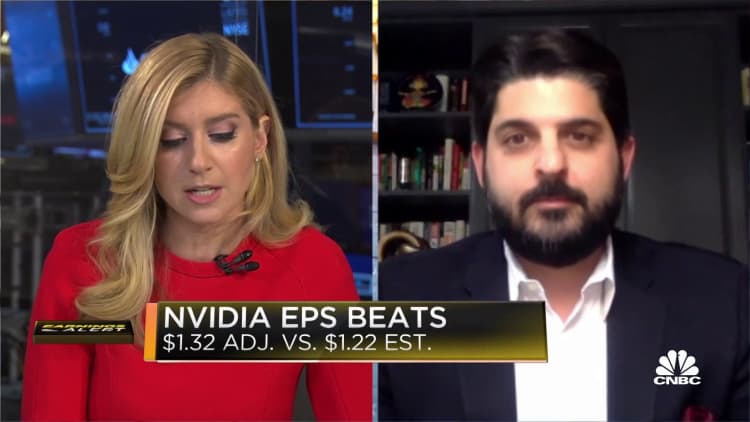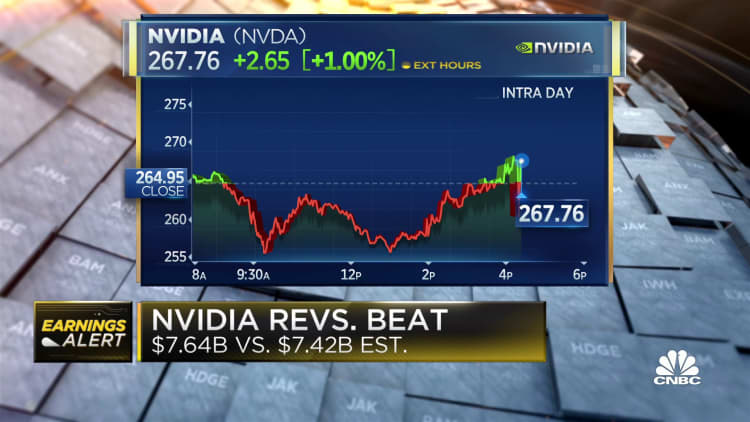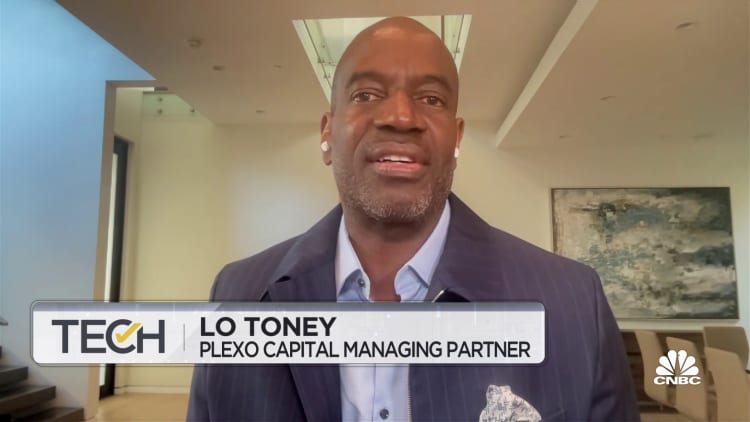Nvidia reported fourth-quarter earnings and sales on Wednesday that beat analyst expectations and provided a strong outlook for the current quarter. The stock fell about 2% in extended trading.
Here's how the chipmaker did versus Refinitiv consensus expectations for the quarter ending January:
- EPS: $1.32, adjusted, versus $1.22 expected, up 69% year-over-year.
- Revenue: $7.64 billion, versus $7.42 billion expected, up 53% year-over-year.
Nvidia said it expects to report revenue of $8.1 billion in the first quarter, higher than analyst expectations of $7.29 billion. Nvidia CEO Jensen Huang said in a statement that the company is seeing "exceptional" demand because its chips are useful for artificial intelligence and other intensive applications.
Huang also said Nvidia's supply constraints were easing and that the company's supply of products would increase "substantially" in the second half of 2022.

Nvidia's stock rallied in 2021, but it is down about 10% so far this year as investors are looking for safer investments in an inflationary environment.
Nvidia has gotten a boost as cloud providers and enterprises turn to its graphics processors that are used for artificial intelligence applications like speech recognition and recommendations. Nvidia reported $3.26 billion in sales from its data center business, up 71% annually.
During the quarter, Nvidia announced that Facebook parent Meta would use its chips for AI research, for example.
Gaming is still Nvidia's largest market, as its latest GeForce graphics processors are ideal for playing advanced computer games. The gaming business rose 37% year-over-year to $3.42 billion driven by GeForce sales, the company said.
Nvidia's chips are also used by businesses for applications like computer-assisted design and rendering. It reports those sales in its Professional Visualization business, which rose 109% annually to $643 million. The company said the growth was driven by workstation chip sales and hybrid working.

However, Nvidia's automotive business was down 14% to $125 million. It's not a primary focus for the company but represents a growth market for its chips. Nvidia said that car makers' supply constraints were one reason that its automotive sales fell.
Nvidia said nearly all of its GPUs now ship with software that prevents them from being used to mine cryptocurrency and that miners can buy specialized mining processors instead. It said it sold $550 million in crypto-specific cards in fiscal 2022, and only $24 million in the fourth quarter.
In a sign of how Nvidia is navigating supply chain issues, the company said it had $9 billion in long-term supply obligations, up from $2.54 billion a year ago.
"We expect supply to improve each and every quarter going forward," Huang said on a call with analysts.
Nvidia was in talks to purchase chip technology company Arm from SoftBank, but the company announced earlier this month that the transaction had fallen apart under regulatory scrutiny.
"We gave it our best shot," Huang said. "But the headwinds were too strong."
Nvidia said it expected a $1.36 billion charge to operating expenses as a result of the Arm deal failing to close.
WATCH: Analysts will look at how companies maneuver supply chains



